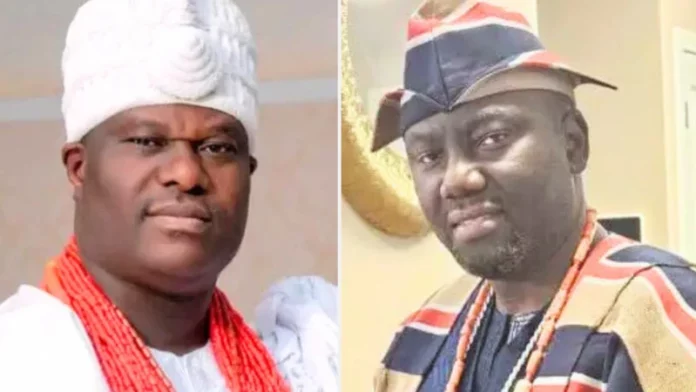The Yoruba Council Worldwide (YCW) has stepped into the growing tension between two of the most respected traditional rulers in Yorubaland — the Alaafin of Oyo, Oba Akeem Owoade, and the Ooni of Ife, Oba Adeyeye Enitan Ogunwusi, calling for calm, dialogue, and immediate reconciliation.
In a statement issued on Wednesday by the Council’s Publicity Secretary, Mr. Charles Adeyemi, YCW expressed deep concern over the public exchange of words and the emerging division among the Yoruba people caused by the rift between the two royal fathers.
Describing the dispute as unfortunate and avoidable, the council emphasized the critical role both monarchs play in preserving the culture, dignity, and heritage of the Yoruba race.
“These are not just ordinary individuals. The Alaafin and the Ooni are living symbols of Yoruba civilisation and pride. This is a time that calls for unity, calm, and wise counsel — not division,” the council stated.
The cause of the current misunderstanding between the monarchs has not been officially detailed, but tensions reportedly escalated after comments were made by the spokesman of the Alaafin, Mr. Bode Durojaiye, who issued a 48-hour ultimatum believed to be directed at the Ooni’s palace.
This development sparked heated debates across social media, with supporters from both camps exchanging harsh words and further fanning the flames of the disagreement.
In its statement, YCW warned against the dangers of letting social media become a battleground for disrespecting traditional authorities.
“We urge all Yoruba sons and daughters, especially those active on social media platforms, to show restraint. Our culture teaches us to respect elders and leaders, especially our traditional rulers,” Adeyemi said.
“Let us avoid inflammatory comments or disrespectful remarks. Instead, let us all be messengers of peace, reconciliation, and cultural pride,” he added.
YCW called for a peaceful resolution, urging that elders and respected voices in Yorubaland step in to mediate and restore peace between the two royal fathers. It also called for a formal peace process involving the Yoruba Obas Conference — a body that brings together traditional rulers from across Yorubaland.
Specifically, the council demanded a truce, an apology, and the withdrawal of the controversial ultimatum issued by the Alaafin’s spokesman, which it said had only worsened the situation.
“The best way forward is open dialogue and mutual respect. We call for the immediate retraction of the 48-hour ultimatum and the convocation of the Yoruba Obas Conference to pave the way for reconciliation and unity,” the statement said.
The Council also reaffirmed the position of its Global President, Aare Barrister Oladotun Hassan, who has consistently advocated for dialogue and unity in the face of internal conflict.
“Under the leadership of our president, we remain committed to fostering peace among our leaders. We believe that with wisdom, patience, and mutual respect, this issue can be resolved to the glory of our ancestors and in the best interest of the Yoruba people worldwide,” the council said.
For centuries, the Alaafin of Oyo and the Ooni of Ife have held special places in Yoruba history and tradition. While the Ooni is widely regarded as the spiritual leader of the Yoruba people, the Alaafin is respected as a powerful symbol of Yoruba political and imperial legacy.
Historically, the relationship between the two thrones has been complex, with periods of both cooperation and rivalry. However, in recent decades, efforts have been made to promote unity and cultural advancement under the shared identity of the Yoruba nation.
Observers say any public fallout between the two monarchs could have far-reaching effects on the unity and image of the Yoruba race, both within Nigeria and in the diaspora.
“This is bigger than just a disagreement between two palaces. It affects the spirit of Yoruba unity and how we are perceived globally,” said Chief Samuel Akinwale, a cultural historian based in Osogbo.
Many prominent Yoruba voices — including politicians, traditional leaders, and scholars — have also called for an immediate end to the rift and the pursuit of peace.
As tension continues to rise, all eyes are now on the elders and traditional institutions of Yorubaland to act swiftly and prevent the situation from escalating further.
For the Yoruba Council Worldwide, the message remains clear: this is a time for healing, not hostility.
“We must protect the dignity of our royal stools and promote the values of peace, unity, and mutual respect. The world is watching. Let us rise above conflict and embrace reconciliation,” the statement concluded.

